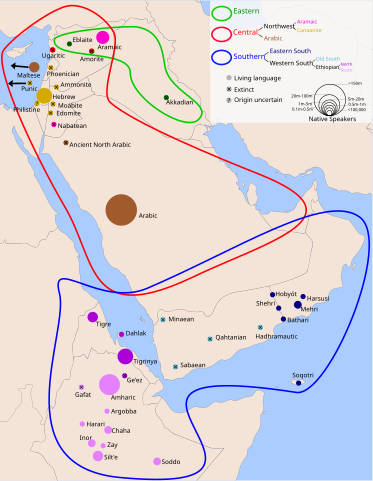In Genesis please cite , Abram came from Ur and he is the ancestor of Jewish people. Ur is a Sumerian city, I want to know whether Abram was a Sumerian, and whether Sumerians are ancestors of Jewish people?
-
1Documenting preliminary research will improve both the probability of an answer and the quality of the answer(s). At a minimum, all questions should explain why Wikipedia is insufficient.– MCW ♦Commented Sep 25 at 10:51
-
1can we really consider bible indication as an historical source? from wikipedia (en.wikipedia.org/wiki/…) : "Most scholars view the patriarchal age, along with the Exodus and the period of the biblical judges, as a late literary construct that does not relate to any particular historical era"– Dan MCommented Sep 25 at 11:09
-
1An important theme in the history of the Jews is whether there is a distinction between ethnic identity (Jewishness) and political identity (Sumerian). A simple answer to this question may mislead. OTOH, I need to cook and eat some crow; T.E.D's answer below is simple, yet not misleading.– MCW ♦Commented Sep 25 at 12:09
-
1I’m voting to close this question because the question is meaningless.– AlexCommented Sep 25 at 17:15
2 Answers
No.
In the story of Abraham, he came from Ur of the Chaldees. That means it was owned at the time by Chaldeans, a West Semetic speaking people. By the time of the Chaldeans, the Sumerians (who spoke a completely unrelated language isolate) had been gone as a people for probably a millennium. They existed only in ancient writings.
A bit of credit to The Bible here, The Chaldeans are at least in the correct language family, since Hebrew and Chaldean were at least both Semitic languages. It was probably the most upscale possible choice in the Semitic world too (one might think suspiciously so*). Unfortunately from linguistics we now know Hebrew is East Semitic, not West, so a putative Abraham would not have spoken Chaldean natively.
A much more linguistically plausible origin for the Jewish people would have been nearby Phoenicia, since the two languages were quite closely related. I've seen some reports that in antiquity Hebrew, Phoenician, and Punic (Carthaginian) were all mutually-intelligible. So personally I prefer to think of the Jewish people as having been the Phoenicians' country cousins.
As for Abraham, you have to realize that nothing in Genesis was written to be a history in the modern sense. They didn't even really have the concept of History back then. Those were cultural tales, written to tell young Jews some deeper truths about who they were as a people and who they were expected to strive to be. If anything in there happens to be historically correct, that's completely incidental to the goals they had in mind when telling that story.
For more info on this, I'd suggest perusing this Wikipedia bit on the Historicity of Abraham. It actually touches on variants of both the Mesopotamian (Amorite) origin theory as well as the local one I gave (Palestinian).
* - It was quite common for ancient peoples to claim descent from a much more respectable/civilized source, presumably to lend themselves some extra credibility. The most famous example is the Roman myth of being founded by refugees from Troy, scoffed at even in ancient times.
Abraham was actually of distant Babylonian descent. The historical story-(or lore) behind Abraham's ethnic origins is that his family migrated from Babylon-(present-day Central Iraq), to the Southern Mesopotamian city of Ur-(present-day Southern Iraq).
The land of Sumer-Sumeria was an ancient land-(even in Abraham's time) whose ethnic origins are non-Semitic, that is to say, the Sumerians, were, in all likelihood, an Indo-European peoples; their earliest writing, Cuneiform, would become the basis for many of the ancient Indo-European languages.
In other words, Abraham, his family and a small number of Babylonian Semitic expats, were living in the ethnically, ethno-religiously and ethno-linguistically Non-Semitic land of Sumer-Sumeria...specifically, within the City of Ur. The Sumerians had no ethnic or anthropological affiliation with Babylonian Semites...such as Abraham and his family.
